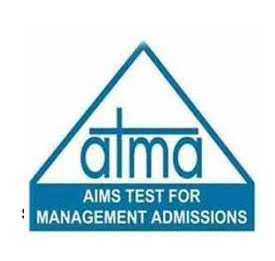PhD Chemistry is a research-based degree programme that can be pursued after MSc Chemistry. It takes 3 to 5 years to complete a PhD in Chemistry, depending on the institute, research area, facilities, and learning ability of the aspirant. While pursuing the course, one has to do academic duties and present the research output in conferences.
The course fee ranges between INR 10,000 to 40,000 for government institutes and INR 2 to 4 Lakhs for private ones. Some universities may not charge the fees to the aspirant receiving a fellowship from government agencies. One can also work on government-funded projects and register for PhD in that research area. Admission is strictly based on entrance exam score and presentation of research proposals.
Table of Contents
- PhD in Chemistry Course Highlights
- What is a PhD in Chemistry?
- Why Pursue PhD in Chemistry?
- Who should study for a PhD in Chemistry?
- PhD in Chemistry Eligibility
- PhD in Chemistry Entrance Exams
- PhD in Chemistry Colleges in India
- PhD in Chemistry Admission Process 2025
- PhD in Chemistry Syllabus
- PhD in Chemistry Fellowship Schemes
- PhD in Chemistry Jobs & Salary
- PhD in Chemistry vs. PhD in Applied Chemistry
- PhD in Chemistry FAQs
PhD in Chemistry Course Highlights
Provided below are some of the key highlights for the PhD in Chemistry:
What is a PhD in Chemistry?
PhD in Chemistry is a doctoral-level graduate degree focused primarily on independent, original research in the field of chemistry. It typically involves conducting a significant research project under the guidance of faculty advisors, culminating in a dissertation that contributes new knowledge to the field.
The program also includes coursework to build a strong foundation in the core areas of chemistry-such as analytical, inorganic, organic, and physical chemistry-and specialized areas depending on the student's research focus.
Why Pursue PhD in Chemistry?
Pursuing PhD in Chemistry offers a well-paid and reputable career in Research and Education.
- After completing a PhD in Chemistry, one may find a job in a university, college, or industry dealing with chemical analysis.
- In Pharmaceutical industries, there is always a demand for chemistry experts for developing medicines.
- While pursuing the PhD in Chemistry, aspirants also get the prestigious fellowship worth INR 15,000 to 60,000 from various government schemes.
- Doing a PhD offers an opportunity to publish research papers, book chapters, and review papers in well-reputed journals, adding extra credit to the profile.
Who should study for a PhD in Chemistry?
A PhD in Chemistry is ideal for individuals who:
- Are passionate about chemistry and eager to conduct advanced, original research.
- Who enjoy solving complex scientific problems and working independently.
- Have a strong foundation in chemistry from their undergraduate studies (usually a bachelor's degree in chemistry or a closely related field).
- Are interested in contributing new knowledge or innovations to the field of chemistry.
- Aspire to a career in academic research or teaching at universities.
- Who wants to work in research and development roles in industry, such as pharmaceuticals, materials science, environmental science, or chemical manufacturing.
- Aim to hold leadership or expert roles in government labs, research institutions, or policy-making related to chemical sciences.
- Are motivated to develop specialized expertise in areas like organic, inorganic, physical, analytical, biochemistry, or materials chemistry.
PhD in Chemistry Eligibility
To register for PhD in Chemistry, one has to clear the entrance exam, either conducted at the national, state, or university level.
- Candidates must have obtained at least a second class (55%) in MSc Chemistry
- Along with that, one must clear any of the entrance exams and the subsequent interview round.
- Selection is based on performance in exams and research proposals given during the interview.
PhD in Chemistry Entrance Exams
Given below are some of the entrance exams which the students need to clear in order to pursue the PhD in Chemistry course:
PhD in Chemistry Colleges in India
There are many colleges offering PhD Chemistry with different specializations. Some of the best colleges/universities are tabulated below.
PhD in Chemistry Admission Process 2025
PhD Chemistry admission is based on entrance exam scores, performance in the interview, potential of the research proposal, and vacancy in specific institutes. For your reference, below is the step-by-step admission process followed at Chandigarh University:
Step 1: Start by visiting the official website of the Chandigarh University, clicking on programs, and navigating to the PhD Chemistry program. The website will redirect you to the course page.
Step 2: In order to take admission to the Chandigarh University for the PhD in Chemistry, students need to give the CUCET conducted by the Chandigarh University.
Step 3: Now, navigate to the Admission section, and it’ll redirect you to the official admission site. Fill out the application form by providing the necessary details and submit it.
Step 4: Now, appear for the CUCET exam conducted by the Chandigarh University. Wait for the merit list to be published by the college, check for your name.
Step 5: If your name appears on the merit list, you'll receive further instructions regarding the interview or document verification round. Keep an eye on your registered email and the official website for updates.
Step 6: Attend the personal interview or presentation round (if applicable), where the university evaluates your research aptitude, subject knowledge, and proposed research area.
Step 7: Once shortlisted, complete the document verification process by submitting your academic transcripts, ID proof, research proposal (if required), and other necessary documents.
Step 8: After successful verification, you’ll receive an offer of admission. Pay the admission fee within the given deadline to confirm your seat.
Step 9: You’ll then be officially enrolled in the PhD in Chemistry program, and allotted a research supervisor/guide. Orientation and coursework details will be shared before the academic term begins.
PhD in Chemistry Syllabus
PhD Chemistry is a research oriented programme, there is no defined syllabus for it. However, for your reference, provided below is the UGC listed syllabus for BITS Pilani.
PhD in Chemistry Fellowship Schemes
Students pursuing PhD in Chemistry can apply for government fellowship schemes based on the category they belong to. For instance, JRF/SRF categories or Gold medalist categories.
Some of the popular fellowship schemes are mentioned below.
- Single Girl Child Fellowship (for female candidates)
- Lady Tata Memorial
- ICMR JRF
- SHODH
- DST JRF
- PMFDR
- CSIR NET/JRF
- University-level fellowship
- DST-WISE Fellowship (for female candidates)
- INSPIRE (for gold medalists)
Those who are qualified for CSIR NET JRF get a fellowship for 5 years.
PhD in Chemistry Jobs & Salary
A person with a PhD in Chemistry can work either in Research, Industry or Academia. There is also an option to work in government agencies such as Safety office, chemical engineer, or project manager.
- Research Scientist: They conduct fundamental and applied research in various areas of chemistry.
- Chemistry Faculty: They teach and conduct research at universities and colleges.
- Postdoctoral Fellow: Their job is to engage in advanced research under the supervision of a faculty member.
- Junior/Senior Research Fellow (JRF/SRF): To conduct research projects under the guidance of senior researchers.
- Research Associate: They assist in research projects and contribute to data analysis and interpretation.
- Project Manager: They manage and oversee the ongoing research projects and ensure compliance of safety and ethical policies.
The salary of a PhD Chemistry holder depends on the job profile, industry type, government policies, funding agencies, and location.
- A junior research fellow or Jr. scientist in India can earn up to INR 4 to 6 LPA, while a senior fellow earns up to INR 15 LPA, depending on the project and industry type.
- An Assistant Professor earns around INR 4 to 7 LPA, which further increases with promotions. Assistant professor promoted to Associate professor, Professor, Principal, Dean, and Advisor. In this ladder, salary ranges between INR 8 to 12 LPA.
- A project Manager working with private organizations can earn up to INR 10 to 12 LPA, whereas a government employee’s salary ranges between INR 12 to 14 LPA.
PhD in Chemistry vs. PhD in Applied Chemistry
Here is a detailed comparison of the PhD in Chemistry and PhD in Applied Chemistry:
PhD in Chemistry FAQs
Do I need to teach students while doing my PhD?
Yes, if you are doing a full-time PhD, teaching Bachelor or Master’s students is mandatory. As per the UGC rules, doing teaching/academic duty for 6 hours/week is compulsory for all PhD aspirants, irrespective of subject and university.
How competitive is the PhD Chemistry admission process?
It is very competitive and hundreds of applicants battle over the few openings every year. Selection panels evaluate originality and depth of your research proposal, strength of writing samples, and academic records. A significant factor is also alignment with areas of faculty research. Application shortlisting is selective; the most qualified candidates are invited.
Am I required to possess a Master degree before I can apply to a PhD in Chemistry ?
The majority of universities in India do require a Master in Chemistry or a related subject at 55% or higher, although a few permit direct entry with a BA with an integrated MA-PhD path. Having an MA also assists in demonstrating your readiness to work at the research level. Admission, however, is based on overall academic strength, research potential and performance in the entrance exams.
Can I do a part-time PhD in Chemistry ?
It is usually good to be a full-time student as various responsibilities of coursework, research, and teaching can be quite demanding. Part-time PhDs are uncommon and typically only acceptable by those who work within an academic or related field. These applicants might possess less strict deadlines but have to achieve strict academic standards. It is advisable to refer to the policy of a particular university.
What type of assistance is given to PhD Chemistry students?
Research funding, stipends or assistantships, mentorship programs, university libraries and online resources are often made available by universities. Publishing, academic writing, and career skills workshops are common. Most also provide wellness support and conference travel grants to assist students in their professional and academic development.
What is the duration of PhD in Chemistry ?
The average time is between 5 and 7 years, but others take more or less time based on the complexity of the research being done. The schedule comprises course work, qualifying exams, research proposal acceptance, dissertation writing, and thesis defense. Delays may arise as a result of fieldwork, data collection, or individual situations. Many universities may set a time limit on what is considered the maximum completion time.
Would I be able to apply for a PhD in Chemistry, despite not being an Chemistry literature major?
Yes, applications are welcome in areas such as journalism, creative writing, or cultural studies, although applicants should demonstrate a good background in literary theory and research methods. Well-developed writing samples and a persuasively written research proposal are vital. Intermediate courses or additional reading may be recommended prior to commencing full-time research.











